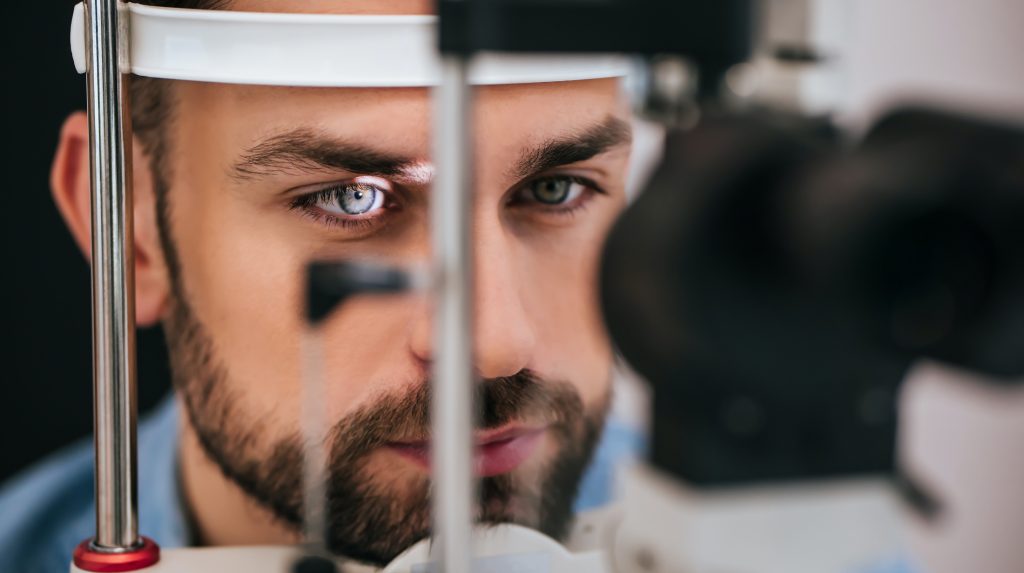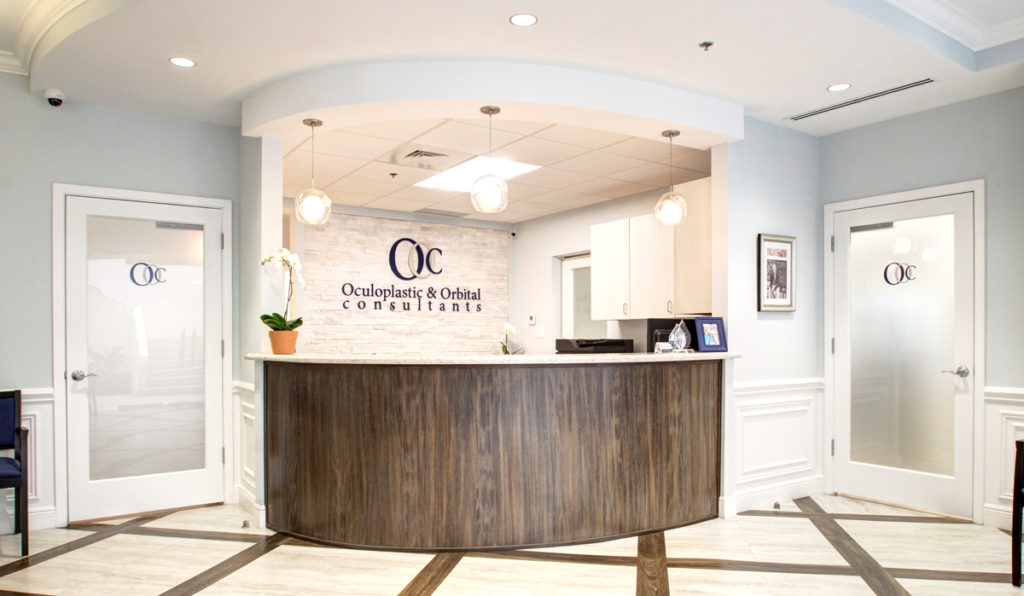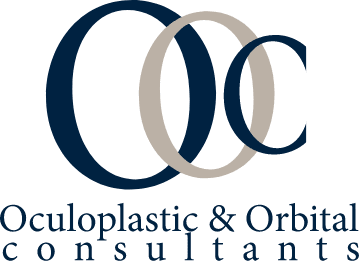Artificial Eye Surgery
Anophthalmia is a medical term that refers to the absence of one or both eyes. This absence can be present at birth (congenital) or can manifest itself over time if an eye or eyes fail to develop properly. A person can also have acquired anophthalmia in which the eye is removed due to trauma or because the eye is blind and painful requiring surgical removal of the eye. The eye can be surgically removed by one of two ways- enucleation or evisceration. Enucleation or evisceration may be done to remove the eye and reconstruct the eye socket to allow a person to wear a prosthesis.

What Is Artificial Eye Surgery?
There are two common forms of artificial eye surgery performed to address a blind painful eye. These include enucleation and evisceration surgery. The former is a procedure in which the entire eye, including the sclera (white part of the eye), is removed. A round sphere implant is then placed inside the muscle cone, and the muscles are attached to the implant. The conjunctiva or skin of the eye is then closed. Once healing is complete, a prosthesis (fake eye) is made by an ocularist. Evisceration is very similar; however, the sclera is left behind and the sphere implant is placed within the remaining sclera. The sclera and conjunctiva are then closed over the implant in a similar fashion.
Who Can Artificial Eye Surgery Help?
Enucleation or evisceration are performed when a blind eye is uncomfortable or when it begins to naturally shrink. The causes of anophthalmia among infants are largely unknown. However, the occurrence of congenital anophthalmia has been linked to the taking of certain medicines, like isotretinoin (Accutane®) or thalidomide, during pregnancy. Those who have been born with this condition can benefit also benefit from surgery. Surgery can not only improve patient appearance, but can reduce functional strain and facial symmetry as well.

How Does Treatment Work?
The eye sockets are critical for the bones in an infant’s face to grow and develop properly. Those born with anophthalmia can be fitted with a plastic structure called a conformer that can help the eye socket and bones grow properly. As babies get older, these devices will need to be enlarged to help expand the eye socket. This ongoing procedure will facilitate artificial eye surgery later in life.
How Does Artificial Eye Surgery Help?
In addition to providing benefits to those born with anophthalmia, artificial eye surgery can also help in cases of eye injury or disease. Those struggling with severe eye injuries, glaucoma, infection, or tumors can undergo surgery to not only treat their conditions, but help them maintain their appearance afterward as well.
Expectations During Artificial Eye Surgery
During surgery, Dr. Connor will cover your eye implant with eye tissue. He will then connect your existing eye muscles to this tissue, allowing for natural eye movement. If done correctly, your prosthetic eye should move in sync with your healthy eye. However, keep in mind that your prosthetic eye’s full range of motion will likely not be as fluid as your natural eye’s.
What Is Recovery Like After the Treatment?
After your surgery, you will likely experience some pain, swelling, and nausea particularly in the first 72 hours. Dr. Connor may prescribe some pain relievers and anti-sickness medications to make you feel more comfortable while your body heals. For two weeks after your surgery, your eyelids will be stitched together over your eye implant and plastic shell. In one month, you’ll be fitted for, and receive, a prosthetic eye. It can take three to four months for the surgery to heal completely.
How Much Does Artificial Eye Surgery Cost?
Many of our reconstructive procedures are covered by insurance and patients will not need to pay out of pocket unless their insurance benefits dictate that that is the case. For those who are self-pay, we will determine the cost during your consultation with Dr. Connor.
Does Insurance Cover This Surgery?
Some medical insurance plans cover the costs of an artificial eye surgery. Other plans may cover part of the costs, but require a co-payment during each visit to your ocularist, surgeon, and doctor. The amount of coverage you can receive for this treatment is highly dependent on the scope of your procedure and particular insurance provider.
Wow!!! If all doctor’s office could be as wonderful as this one. Dr. Connor was fantastic, very professional and gentle. Thank you!!! You and your office gave me a wonderful experience.
– Margarita R.

Artificial Eye Surgery in Palm Beach Gardens, Florida
Palm Beach Gardens oculoplastic surgeon Michael Connor, MD is considered one of the top eyelid surgeons in South Florida. His years of experience in assisting patients with artificial eye surgery make him highly qualified to help you get the results you seek. For more information on what treatment entails, we invite you to contact Oculoplastic & Orbital Consultants today by calling (561) 845-6500 or filling out the form below.
REQUEST CONSULTATION


